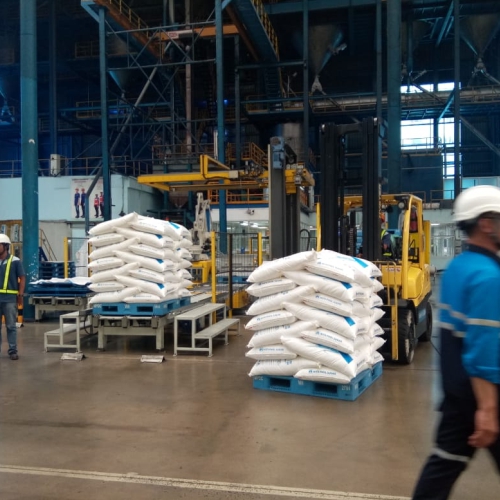New Delhi, April 18 (ANI): A cross-section of industry experts said on Saturday that the coronavirus (COVID-19) pandemic and consequent lockdowns across the world to curb its spread will alter the future of work forever.
At an hour-long virtual discussion moderated by NITI Aayog Chief Executive Officer Amitabh Kant, the industry experts called for undertaking a host of reforms so that Indian corporates can leverage new technologies to innovate, reskill available workforce and leverage the changing scenario to compete on a global scale. Sunil Munjal, Chairman of Hero Enterprises, said India companies must rethink about cost structures and reporting mechanisms by leveraging new technologies to understand customer behaviours and adopting a flexible work environment.
“The COVID-19 crisis will change home-office-factory equation forever. This provides us a good opportunity to reskill our workers. People must learn, unlearn and reskill constantly so that Indian companies can play a greater role on the global horizon,” he said.
Munjal said that with changing global trade paradigm, India has a unique opportunity to attract capital for manufacturing as ‘glocalisation’ sweeps in. At the same time, he said, it is time to dismantle excessive bureaucracy and turn regulators into facilitators, rather than policemen. Janaid Ahmad, India Country Director for the World Bank, said the coronavirus crisis can be a huge opportunity for the private sector to innovate to compete in global markets. At the same time, the state must change the way it governs.
“With a huge young population and rapid urbanisation taking place, it is time for India to revolutionise its social protection systems and shift the scale of urban management,’ he said.
Ahmad said the youth at present is getting into informal sectors if the economy. This must change so that formal sectors can grow. Manish Sabharwal, Chairman of Teamlease, said only 5 to 10 per cent of the Indian workforce can currently work from home. “The crisis has shown us pre-existing problems. Our human capital is weak. We need a dose of labour reforms, education reforms, financial reforms and healthcare reforms,” he said.
At the same time, Sabharwal said, India needs bureaucratic reforms. “We must enable the private sector with resources and less of regulatory cholesterol. There should be more formal and organised enterprises to support eduction-industry linkages.”
NASSCOM President Debjani Ghosh said remote working is not the only best model. New-age companies must adopt a blended model as online learning gains ground for skilling and re-skilling workers. Ghosh also called for doing away with all regulatory procedures for the next two to three years and reprioritising all segments of the economy with a focus on technology and education.
Abhiraj Bhal, Co-Founder of Urban Company, said a lot of people will become unemployed as the gig economy gets a boost. Many Indian organistions are not so resilient as workplaces become global with emphasis on outsourcing to emerging markets.
Bhal said gig workers must be encouraged to flourish with benefits like health insurance and social security cover. This will require structural reforms with a strong focus on manufacturing.












